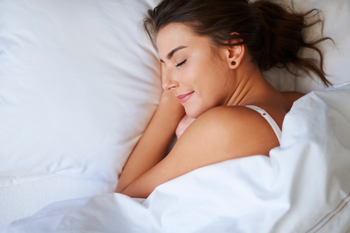The benefits, and risks, of sleep
 “As far as I know, the only reason we need to sleep that is really, really solid is because we get sleepy,” William Dement, retired dean of sleep studies at Stanford University, said in an interview for a 2010 National Geographic article, “The Secrets of Sleep.”
“As far as I know, the only reason we need to sleep that is really, really solid is because we get sleepy,” William Dement, retired dean of sleep studies at Stanford University, said in an interview for a 2010 National Geographic article, “The Secrets of Sleep.”
Unfortunately, continued writer D.T. Max, “the reverse is not always true; we don’t always get sleepy when we need to sleep. Fifty to 75 million Americans, roughly a fifth of the population, complain about problems sleeping. Fifty-six million prescriptions for sleeping pills were written in 2008, up 54 percent over the previous four years.”
Meanwhile, the National Institutes of Health contributes about $230 million a year to sleep research, wrote Max: “comparable to the amount that the manufacturers of the popular sleeping pills Lunesta and Ambien spent in one season on television advertising in 2008.”
Sleep problems range from apnea – in which one’s airway is cut off during sleep, forcing the person to wake up repeatedly throughout the night – to insomnia, when one cannot fall asleep or stay asleep. As of 2006, the National Institute of Medicine estimated that 50 to 70 million Americans experience sleep and wakefulness disorders.
Lack of sleep can be dangerous. For example, research has indicated higher incidences of mistakes – sometimes fatal – made by medical interns working traditional hours, which include extended (24 hour or more) shifts.
But, as Max observed in National Geographic, “we don’t really know why we need to sleep in the first place.”
Why sleep?
According to the National Institutes of Health, “Although scientists are still trying to learn exactly why people need sleep, animal studies show that sleep is necessary for survival. For example, while rats normally live for two to three years, those deprived of REM [rapid eye movement] sleep survive only about 5 weeks on average, and rats deprived of all sleep stages live only about 3 weeks.”
Some studies indicate that sleep deprivation affects a person’s immune system detrimentally, according to NIH. Additionally, sleep seems to be necessary for the nervous system to work properly: A lack of sleep can lead to an inability to concentrate, as well as impaired memory.
For most adults, 7-8 hours of sleep per night appears to be the best amount, says NIH. That amount increases when one is deprived of sleep; this is known as “sleep debt.” “Eventually, your body will demand that the debt be repaid,” says NIH. “We don’t seem to adapt to getting less sleep than we need; while we may get used to a sleep-depriving schedule, our judgment, reaction time, and other functions are still impaired.”
But when one has trouble getting the sleep they need, they may be reluctant to pursue a drug remedy like sleeping pills. Instead, they might prefer a drug-free path. Time magazine recently published an article explaining the potential benefits of six drug-free remedies:
- Melatonin is a hormone produced by the brain in preparation for sleep. It is available in pill and liquid form at health food stores and pharmacies, notes Time.
- Valerian root is also an option. A 2015 review published in the journal Evidence-Based Complementary and Alternative Medicine said that “a few high-quality studies report modest benefits of valerian for insomnia patients,” and that the safety of valerian is well-established.
Some studies demonstrate that lavender has a positive effect on a person’s sleep. As Time notes, “This may be due to lavender’s relaxing effects on the body.” - Chamomile has been used as a sleep aid for thousands of years, observes Time. A 2016 study in the Journal of Advanced Nursing showed that new mothers reported better sleep in their immediate postpartum terms when they drank chamomile tea.
- Meditation might also help. Daniel Barone, M.D., a neurologist at New York-Presbyterian Hospital and Weill Cornell Medical College, recommends shutting off electronics 30 to 60 minutes before bed “and sitting quietly, focusing on soft music or deep breathing,” according to Time. He also recommends a 10-15 minute meditation session for people who wake up in the middle of the night.
- And finally, those in need of a good sleep might want to try a noise machine. Recent research suggests that listening to sounds from nature, such as rainforest sound effects or a babbling brook, can trigger a relaxation response in the brain, says Time.
For D.T. Max’s National Geographic article on sleep, visit http://ngm.nationalgeographic.com/2010/05/sleep/max-text. For NIH’s input, visit https://www.ninds.nih.gov/Disorders/Patient-Caregiver-Education/Understanding-Sleep#for_us. For the full article in Time, visit http://time.com/4732464/natural-sleep-remedies-insomnia/.